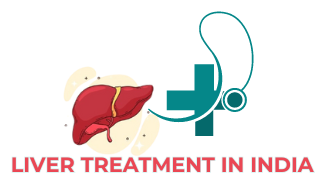How Can Boosting Your Immune System Improve Liver Health?
Keeping the liver in optimal health is essential for general health since the liver is involved in immune system function, metabolism, and detoxification. Investigating the complex Immune system and liver health connection has gained more attention in recent years. According to research at the best liver transplant clinic, a healthy immune system is essential for preventing liver illnesses and preserving liver function in addition to protecting the liver from infections. In this blog, we examine the pathways through which strengthening the immune system can benefit liver health and provide insight into possible tactics to improve both immune response and liver resilience.
Understanding the Link Between Immune System and Liver Health
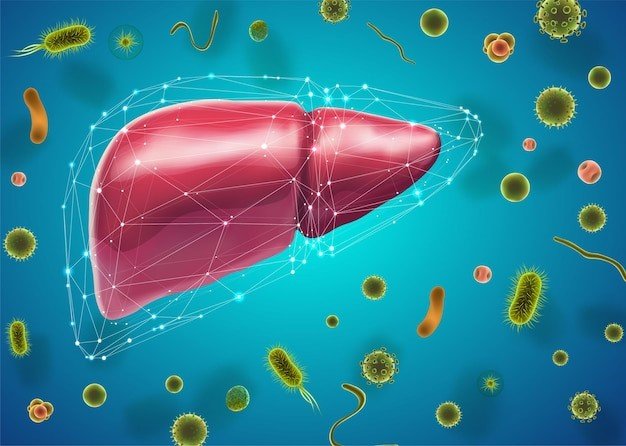
First Line Of Defense
Serving as the liver’s first line of defense against infections and foreign chemicals is one of the major Immune system and liver health connection. Specialized immune cells called kupffer cells, which are found in the liver, scour the bloodstream for dangerous invaders. To stop systemic infection, these cells absorb and destroy bacteria, viruses, and other pathogens. The liver also produces acute-phase reactants and complement proteins, which help the body establish a strong immunological response. An immune surveillance system malfunction can result in autoimmune diseases, persistent infections, and other life-threatening health issues.
Inflammation And Immunological Tolerance
In addition, the liver is essential for controlling inflammation and immunological tolerance. The primary cell type in the liver, called hepatocytes, creates immunomodulatory chemicals that regulate the immune system and stop excessive inflammation and tissue damage. When this regulating process malfunctions, the immune system may erroneously target healthy organs, such as liver cells, leading to autoimmune disorders. Fibrosis, cirrhosis, and finally liver failure can result from persistent inflammation of the liver, as is the case with diseases like hepatitis and fatty liver disease. It is crucial to comprehend the delicate balance that exists between inflammation and immunological tolerance in order to properly treat liver disorders with targeted medicines.
Gut Microbiota
Furthermore, new study emphasizes the importance of the gut-liver axis in Immune system and liver health connection by highlighting the two-way communication between the gut and the liver. Through its metabolites and byproducts, the gut microbiota—a complex collection of bacteria that live in the gastrointestinal tract—influences inflammation and immunological function. Dysbiosis, or disruption of the composition of the gut microbiota, has been linked to a number of liver diseases, including alcoholic liver disease (ALD) and non-alcoholic fatty liver disease (NAFLD).
Impact of Immune Dysfunction on Liver Diseases
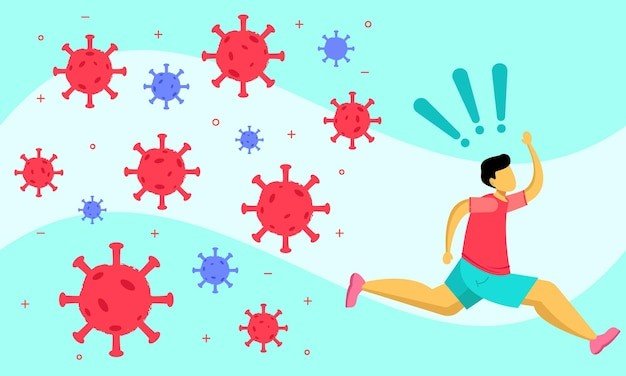
Chronic Inflammation
Chronic inflammation is one of the main ways immunological dysfunction contributes to liver disorders. Dysregulated immune responses can cause chronic inflammation in the liver tissue in diseases such hepatitis B and C, autoimmune hepatitis, and non-alcoholic fatty liver disease (NAFLD). In addition to harming the liver’s functioning cells, or hepatocytes, this persistent inflammation also activates the liver’s stellate cells, which results in the deposition of scar tissue (fibrosis) and, eventually, the development of cirrhosis.
Risk Of Infections
Furthermore, immune system malfunctions can make liver illnesses worse by reducing the body’s capacity to fight off infections and poisons. The liver is an essential organ for immunological defense and monitoring because it detoxifies dangerous chemicals and filters blood from the gastrointestinal system. However, the liver’s capacity to remove toxins and pathogens is hampered when the immune system is weakened, which puts people at risk for infections and more liver damage. These circumstances can be brought on by immunosuppressive drugs, autoimmune diseases, or HIV/AIDS.
Disease Resistance
Additionally, immunological dysfunction may affect how well liver diseases respond to treatment and how long they last. For instance, compromised immune responses in individuals with chronic hepatitis B or C may lessen the effectiveness of antiviral treatments, resulting in ongoing viral replication and the advancement of the illness. Similarly, dysregulated immune responses can lead to treatment resistance and disease recurrence after liver transplantation in autoimmune liver illnesses such primary biliary cholangitis and autoimmune hepatitis.
Boosting Immune Function for Liver Health

Keeping the immune system strong is critical for general health, and it is especially important for liver function. The liver is essential to the body’s general health since it is involved in both metabolism and detoxification. In order to improve liver health and understand Immune system and liver health connection, we primarily look at lifestyle modifications and immune system support for liver health interventions and techniques that aim for boosting immune function for liver health. We can empower ourselves to protect one of our body’s most important organs from possible dangers and to advance long-term wellbeing by learning how to improve immune responses.
Maintaining Gut Microbiome Balance with Probiotic and Prebiotic Foods

- Probiotics and gut health in liver-immune system crosstalk-Eat foods high in probiotics, such as kombucha, sauerkraut, kimchi, kefir, and yogurt, to help your gut grow good bacteria.
- Liver treatment doctor advises that you include prebiotic foods to support the gut flora that are already present, like oats, bananas, garlic, onions, and leeks.
- To maintain general gut health, aim for a varied diet rich in whole grains, legumes, fruits, and vegetables.
- Antibiotic overuse should be avoided as it can upset the gut microbiota’s equilibrium.
- Eat less processed food and added sweets as these can have a harmful effect on gut flora.
- Concerned about low consumption of foods rich in probiotics and gut health in liver-immune system crosstalk, you might want to think about taking probiotic pills.
- Drink plenty of water, as it aids with digestion and promotes the growth of beneficial bacteria in the stomach.
Gut-Liver Axis: How Gut Health Impacts Immune Function and Liver Health
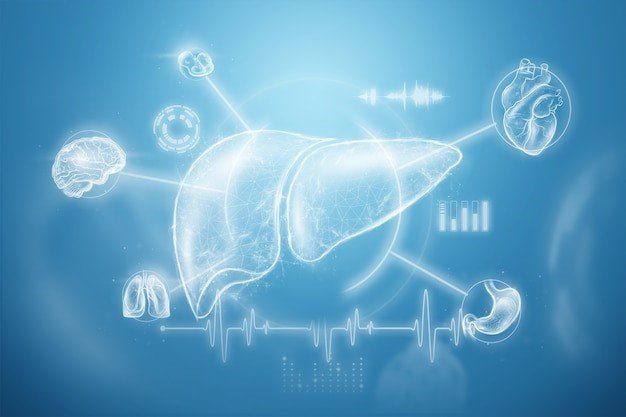
The billions of microbes that make up the gut microbiota are crucial to this axis. These microbes alter liver function by influencing immune responses and metabolic activities. Unbalances in the gut microbiota can cause immunological dysregulation and exacerbate liver illnesses such alcoholic liver disease (ALD) and non-alcoholic fatty liver disease (NAFLD).
Sustaining liver function and immunological balance depend on a robust gut flora. Short-chain fatty acids (SCFAs) and other metabolites produced by beneficial bacteria in the gut aid in immune response regulation and inflammation reduction.
The intestinal barrier protects the liver from dangerous drugs by keeping them from getting there and inflicting injury. An increase in intestinal permeability, sometimes referred to as “leaky gut,” is a disruption of this barrier that can let bacteria and toxins to go into the liver, where they can cause inflammation and immune system activation.
The Gut-Liver Axis also highlights the reciprocal communication between the liver and the gut and the influence of liver health on gut function. Changes in the composition and function of the gut microbiota can result from liver illnesses like cirrhosis, which can worsen intestinal permeability and encourage systemic inflammation. This vicious cycle emphasizes how crucial it is to treat liver and gut health in order to control and prevent a variety of immune-related and metabolic diseases.
Incorporating Fermented Foods for Gut Health and Immune Support

- Probiotics from fermented foods, such as kefir, sauerkraut, kimchi, and yogurt, help maintain a healthy gut flora.
- Fermented foods contain probiotics that contribute to the balance of beneficial bacteria in the gut, which is necessary for healthy digestion and absorption of nutrients as observed by the liver treatment doctor.
- Since the gut contains a large amount of the immune system, improved gut health through fermented foods can improve immune function overall.
- Foods that have undergone fermentation may aid in lowering inflammation, which is connected to a number of chronic illnesses and immune system problems.
- Frequent consumption of fermented foods can help with bloating, improved bowel movements, and better digestion.
- Consuming foods that have undergone fermentation may strengthen the body’s defenses against infections and diseases, according to liver expert doctors.
- When adding fermented foods, variety is important. Experiment with different kinds to guarantee a wide variety of probiotic strains.
Maintaining a Healthy Lifestyle with Regular Exercise and Adequate Sleep

- Exercise enhances mood, strengthens the heart, and aids with weight management.
- Aim for 150 minutes or more per week of aerobic activity at a moderate to high level or 75 minutes or more at a high intensity.
- At least twice a week, incorporate strength training activities to preserve bone density and increase muscle mass.
- Getting enough sleep is just as vital to general health.
- For adults, 7-9 hours of sleep every night is the goal.
- Immune system performance, mood control, and cognitive function all improve with enough sleep.
- Even on weekends, stick to a regular sleep routine by going to bed and waking up at the same times each day.
Managing Stress Levels to Reduce Immune System Suppression

- Reduce stress by engaging in relaxation exercises like yoga, meditation, or deep breathing.
- Regular physical activity will increase endorphins and reduce stress.
- Make good sleep hygiene a priority to guarantee that you get enough sleep, as sleep deprivation can exacerbate stress and impair immunity.
- Keep your diet well-balanced and full of healthy grains, fruits, and vegetables to supply the nutrients your immune system needs.
- Consuming alcohol and coffee in excess can worsen stress and interfere with sleep cycles.
- To lessen overwhelm and anxiety, set reasonable goals and use your time wisely.
- Spend time with friends and relatives who are supportive in order to cultivate social relationships.
- If stress becomes too much for you, get professional assistance through counseling or therapy at the best liver transplant hospital in India.
Importance of Vaccinations in Liver Health
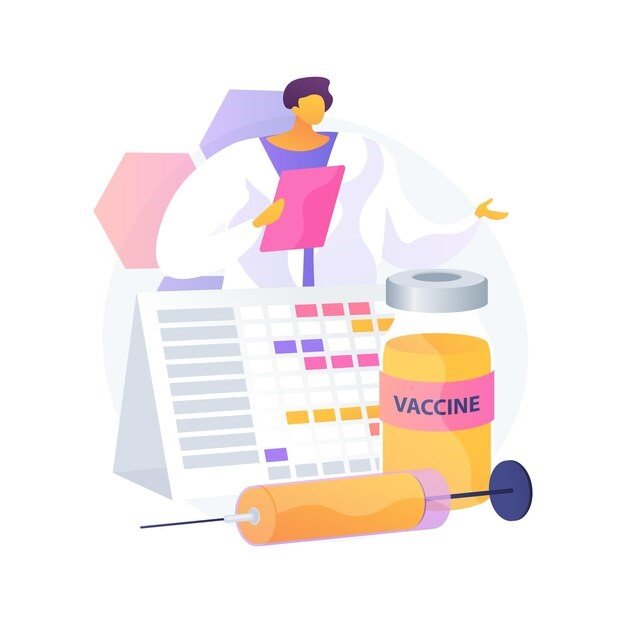
Overall health depends on maintaining liver function, and immunizations are essential for protecting this important organ. Importance of vaccinations in liver health is that they help avoid issues connected to the liver in addition to providing protection against certain diseases. Vaccinations work as preventative measures to preserve liver function and reduce the likelihood of significant liver disorders by strengthening the immune system’s defenses against hepatitis viruses and other infections that can affect the liver. Promoting personal and societal health programs targeted at preventing liver disorders and improving lifestyle modifications and immune system support for liver health requires an understanding of the importance of immunizations in liver health.
Vaccinations Against Hepatitis A and B for Liver Disease Prevention
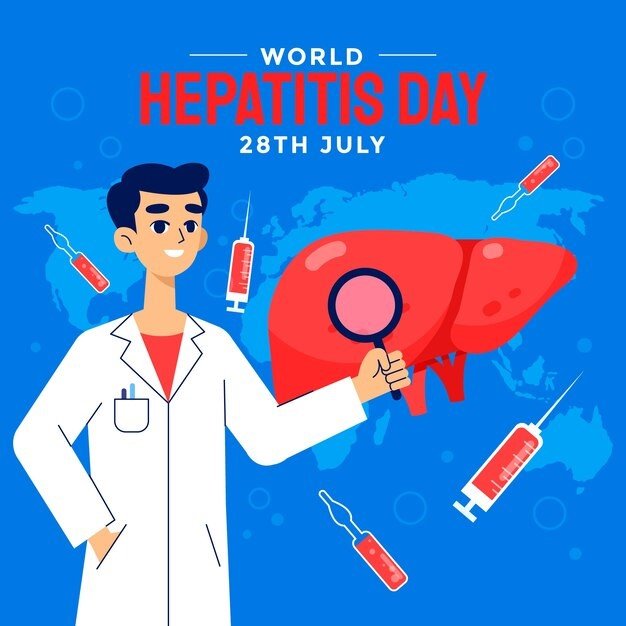
Importance of vaccinations in liver health, especially Hepatitis A and B vaccinations are essential foundations in the fight against liver disease. Acute liver inflammation can result from hepatitis A, which is mainly spread via contaminated food, water, or intimate contact with an infected individual. Immunization provides a strong defense against this virus, averting both personal and communal infections.
Similar to this, Hepatitis B increases the risk of a chronic liver infection, which can result in serious consequences like cancer and liver cirrhosis. It is spread through contaminated blood, semen, or other body fluids. The key to battling this potentially fatal virus and providing long-term protection against Hepatitis B infection is vaccination.
International healthcare systems may dramatically lower the burden of liver disorders, improving public health outcomes and boosting general well-being, by advocating for widespread immunization against both Hepatitis A and B. More than just personal safety, communities must be protected from the devastation these avoidable diseases can cause by working together.
Annual Influenza Vaccination to Protect Liver from Secondary Infections
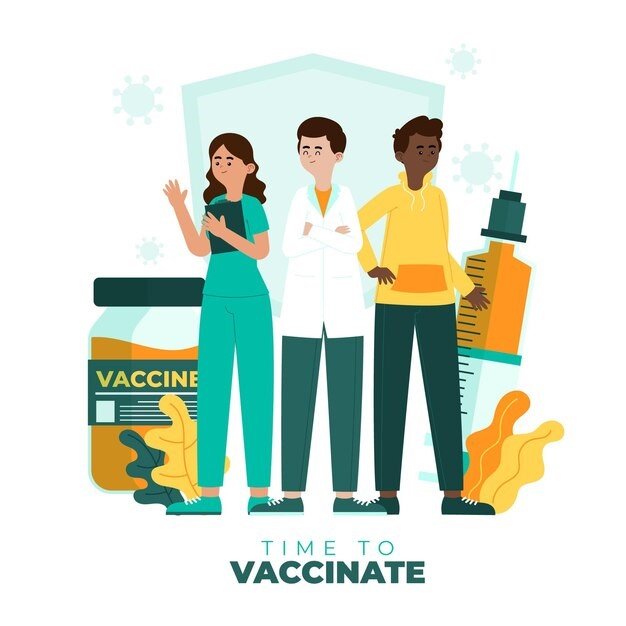
Vaccination against influenza each year is essential for protecting against the virus itself as well as secondary illnesses that can affect the liver and other organs. The body’s heightened immune response and possible consequences during influenza bouts can make the liver, an essential organ responsible for detoxifying and supporting metabolism, more vulnerable. Those who receive an annual vaccination contributes to boosting immune function for liver health and lower their chance of developing liver-damaging influenza-related problems.
Necessary For High Risk Population
Influenza vaccination is essential for people whose liver health is at risk because influenza infections can aggravate pre-existing liver diseases or cause brand-new liver problems. Patients with hepatitis, for example, are more likely to get the flu and experience serious influenza complications, such as liver failure. Getting vaccinated every year protects patients against influenza, but it also protects their liver function indirectly by averting possible flu-related complications or exacerbations.
Lessening Strain On Healthcare Systems
Moreover, by lessening the overall strain on healthcare systems, annual influenza vaccination supports larger public health initiatives. Vaccination helps reduce the burden on medical staff and resources by reducing the frequency of influenza and its related complications, which can include liver-related issues. This way, patients with liver diseases can obtain prompt care without overcrowding hospital beds.
Increasing immune system strength can greatly improve liver health by lowering the chance of developing several liver diseases and improving general health. People can strengthen their bodies’ ability to fight infections and preserve good liver function by implement strategies for boosting immune function for liver health, eating a balanced diet, exercising frequently, and managing stress well. Liver Treatment India is a useful resource for anyone looking for thorough advice and easy access to the best liver transplant clinics. Take the first step toward a better, more energetic life with Liver Treatment India today. With its vast network of best liver transplant hospital in India and liver expert doctors, make the right health choices.
